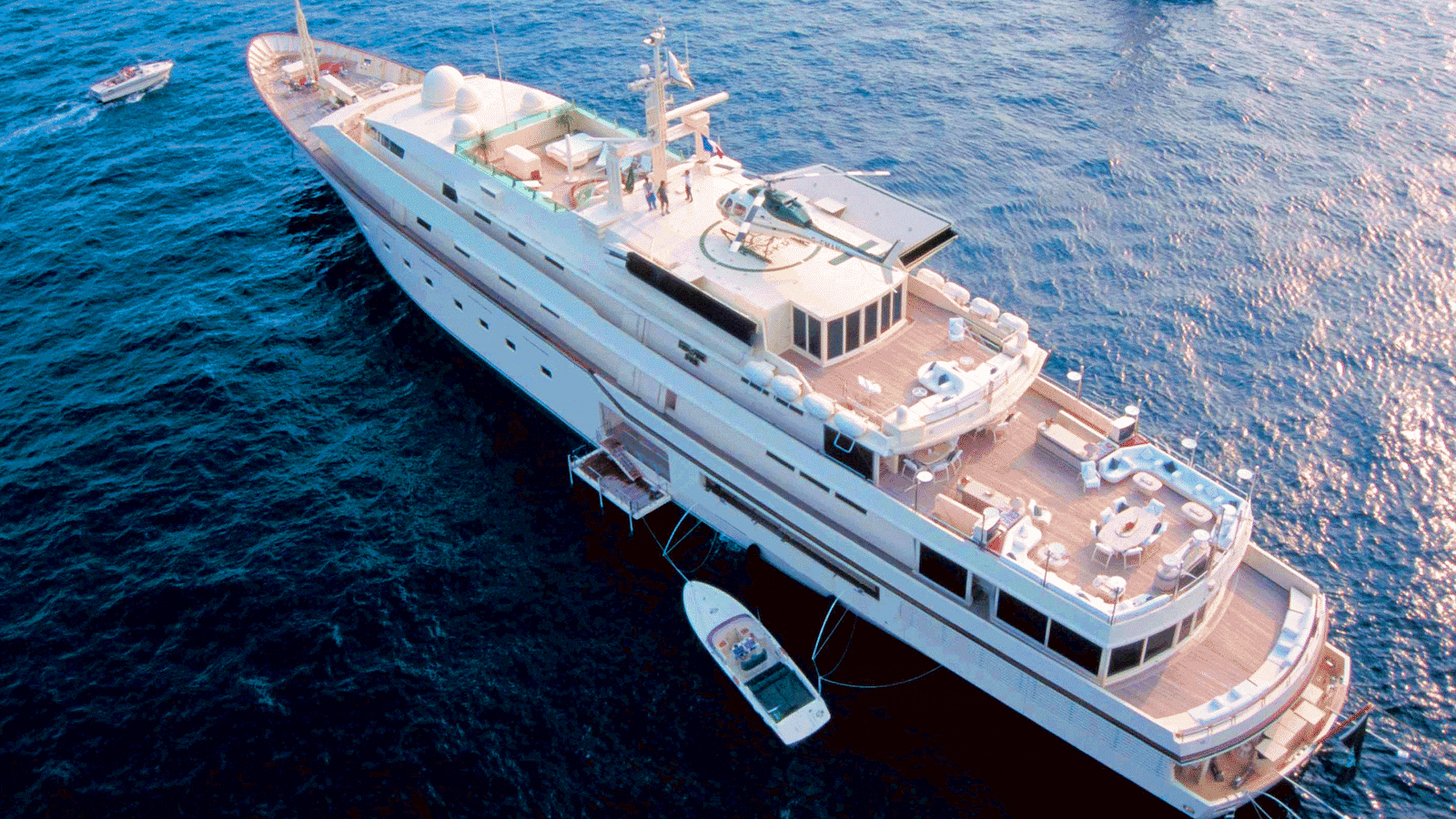Where have all the superyachts gone?
That is the question that locals and business owners in the south of France are asking this summer.
And the answer appears to be: Italy, Greece, Turkey, and Spain.
Casting an eye across the limpid surface of the Mediterranean this August from the beaches of Monaco, St. Tropez, or Antibes in the south of France, there is a noticeable dearth of the massive, multimillion-dollar yachts which are usually such a feature of high summer in le Midi, as natives call the south of France.
As Nancy Heslin, a Canadian-born reporter who covers the region, told The Daily Beast, “I was in Monaco the other day going to a meeting, and I was half-looking for a great yacht to snap for Instagram. But it is really noticeable that they are not as plentiful as previous years. Nice Matin and Monaco Matin always used to have front page photos saying which big yacht was here, but they haven’t been able to do that so much this year.”
While the ongoing presence of €10 cups of coffee and €1000 bottles of Champagne might serve to reassure the casual observer that the region is still as attractive to the sun-loving super-rich as it ever was, appearances can be deceptive.
Talk to locals involved in the multibillion-euro yachting sector—and in the south of France that’s nearly everyone, in some trickle-down shape or form, as yachting is by some measures the biggest earner in the region after hotels and wine—and you detect a sinking feeling.
Their discomfort is due to the fact that, despite the opulent optics, beneath the azure waters, trouble is brewing.
More and more yachting money is draining away from Monaco and the south of France—and washing up in other European countries such as Spain, Italy, Greece, and Turkey.
The core reason for the superyacht exodus is financial; France has tightened up on previously lax tax regulations for the captains and crew members of yachts who officially reside in France, and often have families on the mainland, but traditionally have evaded all tax by claiming they were earning their salary offshore.
The country has also taken a hard line on imposing 20 percent VAT on yacht fuel sales, which often used to be dodged. Given that a typical fill can be around €100,000, it is understandable that many captains are simply sailing around the corner to less pernickety jurisdictions.
Revenue at the iconic marina in Saint-Tropez has, according to a worried letter sent to President Emmanuel Macron by three of the Riviera’s most prominent politicians (Renaud Muselier, the president of the Riviera region, Christian Estrosi, the mayor of Nice, and Hubert Falco, the mayor of Toulon) fallen by 30 percent since the beginning of the year, while Toulon, a less glamorous destination, has suffered a 40 percent decline.
“The gravity of the economic situation of the yachting sector in the Provence-Alps-Riviera region makes it necessary for us to appeal for your direct intervention,” they said in the open letter to Macron released to the media.
They stated that refueling a 42-meter yacht in Italy (instead of France) “gives a saving of nearly €21,000 a week because of the difference in tax.”
Sales by the four largest marine fuel vendors has fallen by 50 percent this summer, the letter said, adding that French “yachties”—an inexperienced 19-year-old deckhand makes around €2,000 per month and a good Captain can command €300,000—were being laid off in droves, as, due to the new tax rules, national insurance, health and other compulsory contributions which boat owners pay for crew members have increased from 15 to 55 percent of their wages.
The letter stated that “the additional cost of maintaining a seven-person crew in France is €300,000 (£268,000) a year.”
Nicholas Edmiston, the founder of the eponymous luxury yacht brokerage Edmiston, told The Daily Beast, “Just a week ago we had a yacht on charter that had to refuel in France instead of Italy because of a delay, and it cost an extra €40,000 in VAT
“Of course the people who own these yachts can probably afford to pay more, but they prefer not to.
“But the real issue now is that the French want to collect tax from crew. A lot of crew living on boats all over the world have wives and family living ashore, in France, benefiting from the largesse of the French state in terms of education and welfare and even benefits.
“Many captains earn around €100,000, but first class captains on th biggest yachts could be on €300,000 or more—and they were not paying any tax on it.
“The French have got wise to it, and they are now imposing these new taxes.”
Edmiston, who has lived in Monaco and the south of France for at least part of the year for many years, recalls with some weariness that the French have been down this avenue before.
“It happened in France about 30 years ago, so people moved their boats to Italy, then when they changed it, they moved them back again. Yachting is huge revenue earner for the region. All the brokerages are based in Monaco or the south of France and we contribute huge sums in social security alone.
“But the bigger issue is that people holidaying on yachts here go ashore and spend money—and a lot of it.”
Says Heslin: “The possibility of this happening if taxes and fees were increased has actually been talked about for the last two years, and everyone warned what would happen.
“But this where the French government so often goes wrong, this attitude of, ‘Well, we are France, people will always come here.’”
This time, it appears, they have called it wrong.
Edmiston says, “Yachting is very important to local economy, but if people are not made to feel feel welcome here, there are plenty of other places where they will be.”





